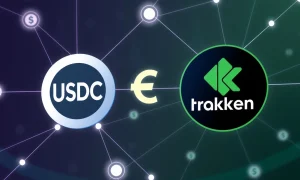The cryptocurrency investment landscape just experienced a monumental shift as the SEC unveils groundbreaking new rules that dramatically streamline the approval process for spot crypto ETFs. This regulatory breakthrough promises to revolutionize how investors access digital assets through traditional markets.
SEC Implements Game-Changing Crypto ETF Framework
The U.S. Securities and Exchange Commission has adopted transformative generic standards that fundamentally alter the crypto ETF approval process. These new regulations allow exchanges to list and trade commodity-based products, including digital asset trusts, without requiring individual approval for each product. Consequently, this eliminates the lengthy Section 19(b) rule change process that previously stretched approvals over several months.
Accelerated Approval Timeline for Crypto Products
Under Rule 6c-11, major exchanges including Nasdaq, NYSE Arca, and Cboe BZX can now move significantly faster. The updated framework applies to trusts holding cryptocurrencies that meet specific eligibility criteria. However, the SEC maintains crucial oversight despite the streamlined process.
Eligibility Requirements for Crypto ETF Listings
To qualify under the new standards, cryptocurrency trusts must satisfy one of several key conditions. First, the digital asset must trade actively on an Intermarket Surveillance Group member platform. Alternatively, the commodity must underlie a futures contract listed on a designated market for at least six months. Additionally, trusts may qualify if an existing exchange-traded fund already links at least 40% of its net asset value to the cryptocurrency.
Market Experts Hail Crypto ETF Breakthrough
Industry leaders immediately recognized the framework’s significance. SEC Chair Paul S. Atkins emphasized how these standards maintain U.S. capital markets’ leadership in financial innovation. Bloomberg analyst James Seyffart described the move as a turning point for crypto exchange-traded products. Meanwhile, Bitwise Asset Management president Teddy Fusaro characterized it as a landmark regulatory reversal dating back to 2013 bitcoin ETF filings.
Pending Applications and Future Implications
Several spot cryptocurrency ETF applications await approval, including products tied to Solana, XRP, Litecoin, and Dogecoin. Market participants expect accelerated reviews and listings following this regulatory update. The decision reflects broader political support for digital assets and aligns with the current administration’s favorable stance toward cryptocurrency innovation.
Regulatory Concerns and Balanced Oversight
Not all SEC commissioners supported the decision unanimously. Commissioner Caroline Crenshaw expressed concerns about reduced review requirements for new products. She highlighted ongoing risks in crypto spot markets and questioned whether generic listing standards suit digital asset products currently. Despite these reservations, the framework represents a significant step toward mainstream cryptocurrency adoption.
FAQs: SEC’s New Crypto ETF Rules
What changes did the SEC make to crypto ETF approvals?
The SEC adopted generic standards allowing exchanges to list certain cryptocurrency ETFs without individual approval processes, significantly speeding up listings.
Which cryptocurrencies qualify under the new rules?
Cryptocurrencies must meet specific criteria, including trading on surveillance-sharing platforms or having established futures contracts.
How long will crypto ETF approvals take now?
While exact timelines vary, the new process eliminates months-long reviews, making approvals significantly faster than previous procedures.
Do these rules apply to all cryptocurrency ETFs?
The rules apply to spot cryptocurrency ETFs that meet the eligibility requirements set forth by the SEC’s new framework.
What concerns did SEC commissioners raise?
Some commissioners expressed concerns about reduced oversight and whether current crypto markets are mature enough for streamlined approvals.
How will this affect pending crypto ETF applications?
Pending applications for cryptocurrencies like Solana, XRP, and Litecoin will likely experience accelerated review processes under the new framework.








